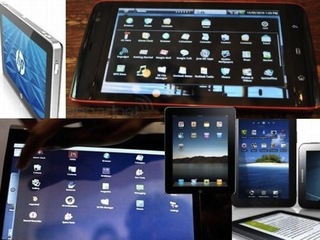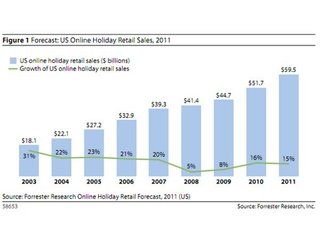MyFitnessPal launches support tools for patients on GLP-1 meds
The tools include content such as educational videos, recipes, and daily nutrition tips
Read more...
Workers are increasingly using multiple devices, and employers are beginning to shift policy regarding how to manage those devices.
A new report from global research and advisory firm Forrester, entitled “Benchmarking Your Enterprise Mobile Device Operations Initiatives And Plans,” has found some key insights that show just how quickly the workplace is changing.
The report, which is designed to give advice to IT executives and departments advice on how to manage mobile devices in the workplace, found that two thirds, or 66%, of employees are now using at least two devices for work, including not only laptops and desktops, but smartphones and tablets as well. Even more surprising: 16% are using four devices while at work. (I've heard of multi-tasking but that just sounds ridiculous!)
While 12% of those surveyed said that they use tablets during a workday, it is still the desktop that dominates: 50% of workday time is spent only using a desktop, and 82% of a workers total time involves a desktop in some capacity.
When it comes to laptops, only 6% of time is spent using the device exclusively, but a full 53% of time is spent using only a laptop or using with another device. For smartphones, 35% of total time during the workday is spent using them, either exclusively or with a laptop or desktop.

While workers are becoming more comfortable accessing information from different sources, employers are also becoming somewhat more comfortable with supplying workers with multiple devices, even though a majority are still forced to buy their own.
When it comes to desktops, 71% of them were issued to employees directly by the company they work for. Frankly, I’m surprised this number is not actually higher. Seriously, how many people are going to lug an entire desktop computer to work?
For smaller devices, though, they are mostly brought in by the workers themselves, even though most of the company's surveyed said it is important to them that this changes over the next year.
55% of organizations in the study said they that supporting a larger number of smartphones was a high or critical priority for them over the next year, and 52% said the same thing about supplying tablets, the majority of non-desktop devices are still being bought and paid for by the employee themselves. Forrester calls this a “BYOD”, or bring your own device, policy.
For example, 70% of tablet users bought their own, while only 15% of companies issued the tablets directly and 13% of employees had to choose it from a company-approved list. While, as I noted above, companies aresay that they are most likely to supply their workers with smartphones, but 67% still bought it themselves. Only 15% were supplied by an employer.

According to the report, a majority of company’s are interested in developing a more comprehensive BYOD strategy.
“As companies are forced to support new types of operating systems, devices, andapplications for employees, many firms are focusing on developing and formalizing their bring your-own-device mobility strategy. More specifically, 54% of North American and European firms are focused on developing a comprehensive corporate policy to support employees who bring their own smartphones and tablets to work and use them for work activities. BYOD strategy initiatives include identifying which mobile devices, applications, and services firms will support, as well as the policies and procedures to guide help desk and customer service support for employees, partners, and customers,” Forrester said in the report.
Forrester also identified a new source of IT mobile management that I had never even heard of before.
18% of enterprises are implementing corporate application stores, which are designed to offer employees pre-approved apps that will "ensure consistent mobile application useacross the organization."
“Corporate application stores enable IT organizations to control the applications employees can access as well as ensure consistent mobile application use across the organization.4 Employees can find and download coporate-approved apps for officially supported mobile operating system or mobile device. Firms that choose not to deploy enterprise app store solutions can still address the application distribution needs of their employees by leveraging successful consumer-focused app stores from vendors, including Apple, RIM/BlackBerry, and Samsung. While these stores are primarily used for consumer apps,” Forrester said.
(Image source: https://www.sharpenz.com/)
The tools include content such as educational videos, recipes, and daily nutrition tips
Read more...Advances in technology, like in vitro and microfluidics, have helped advance research
Read more...Robots are taking over the heavy lifting work inside warehouses
Read more...

